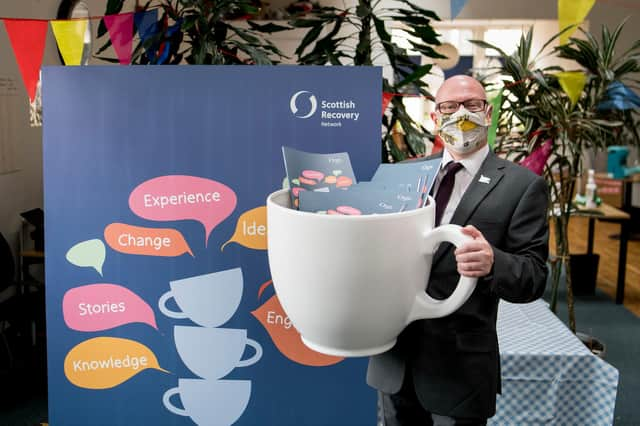Where there is tea, there is hope! - Christine Muir


Of course I immediately photographed it and posted the picture to social media but the words have always stuck with me in a deeper sense. They bring to mind a whole range of people and places that have been part of my mental health recovery journey. I associate sitting down with a cup of tea and the spaces in which this happens with hope and connection. That hope often comes from other people. People who have experienced similar things and understand. People who have ideas to share with me to help me cope and vice versa. People who have a passion for making things better.
I was interested to read that historically the opening of coffee houses in the 17th and 18th centuries attracted great thinkers who came together to discuss the matters of the day. Nowadays cafés of all shapes and sizes provide a friendly place for conversations to flow and problems to be solved.
Advertisement
Hide AdAdvertisement
Hide AdThere is no doubt that some of the best solutions come from informal conversations. Through my role at the Scottish Recovery Network I feel lucky to have been involved in the development of a new engagement toolkit that harnesses the very essence of that statement. Run your own Recovery Conversation Café helps organisations and services bring people together in welcoming spaces with a structure that helps people have great conversations about what is important to them.
People with lived experience of mental health problems have a wealth of experience, knowledge and skills to offer. Unfortunately they often find it difficult to have their voices heard. Providing a different approach to engagement a recovery conversation café moves away from the constraints of traditional consultation. Echoing the coffee houses of the past the approach brings people together in a way that deliberately disrupts power to welcome everyone as equals with valued knowledge and experience. People are not just passive responders but active participants, listening to each other and building on ideas.
The toolkit is based on learning from tried and tested initiatives from the Scottish Recovery Network and our partners. These initiatives are enabling people to influence mental health strategies and be involved in the design and delivery of mental health support. They are bringing people together to share experiences and ideas that bring about positive change in their lives, in their communities and in wider society.
At the recent launch of the Run your own Recovery Conversation Café toolkit the Minister for Mental Wellbeing and Social Care, Kevin Stewart MSP emphasised just how important the voice of lived experience is:
“I am delighted to be involved in the launch of this resource. We need to recognise the value of the voice of lived experience and integrate it into all parts of our mental health system.
Lived experience enriches our understanding in a way no second hand accounts can. The Recovery Conversation Café approach is a really good example of an innovative way to capture what is important to people, allowing us to work together to make sure the valuable insights and ideas from people with lived experience are heard and acted on”
When I think about that wooden heart on a stick and those wise words ‘Where there is tea, there is hope’ it strikes me that where there is tea there is also connection, participation, involvement and activism. There are people who come together to tell us loud and clear what it is they need to support their mental health recovery and wellbeing.
Order your free Run your own Recovery Conversation Café toolkit from Scottish Recovery Network by calling 0300 323 9956 or emailing [email protected] (Scotland only).
Or download from our website www.scottishrecovery.net
Christine Muir, Senior Communications Officer, Scottish Recovery Network
Comments
Want to join the conversation? Please or to comment on this article.